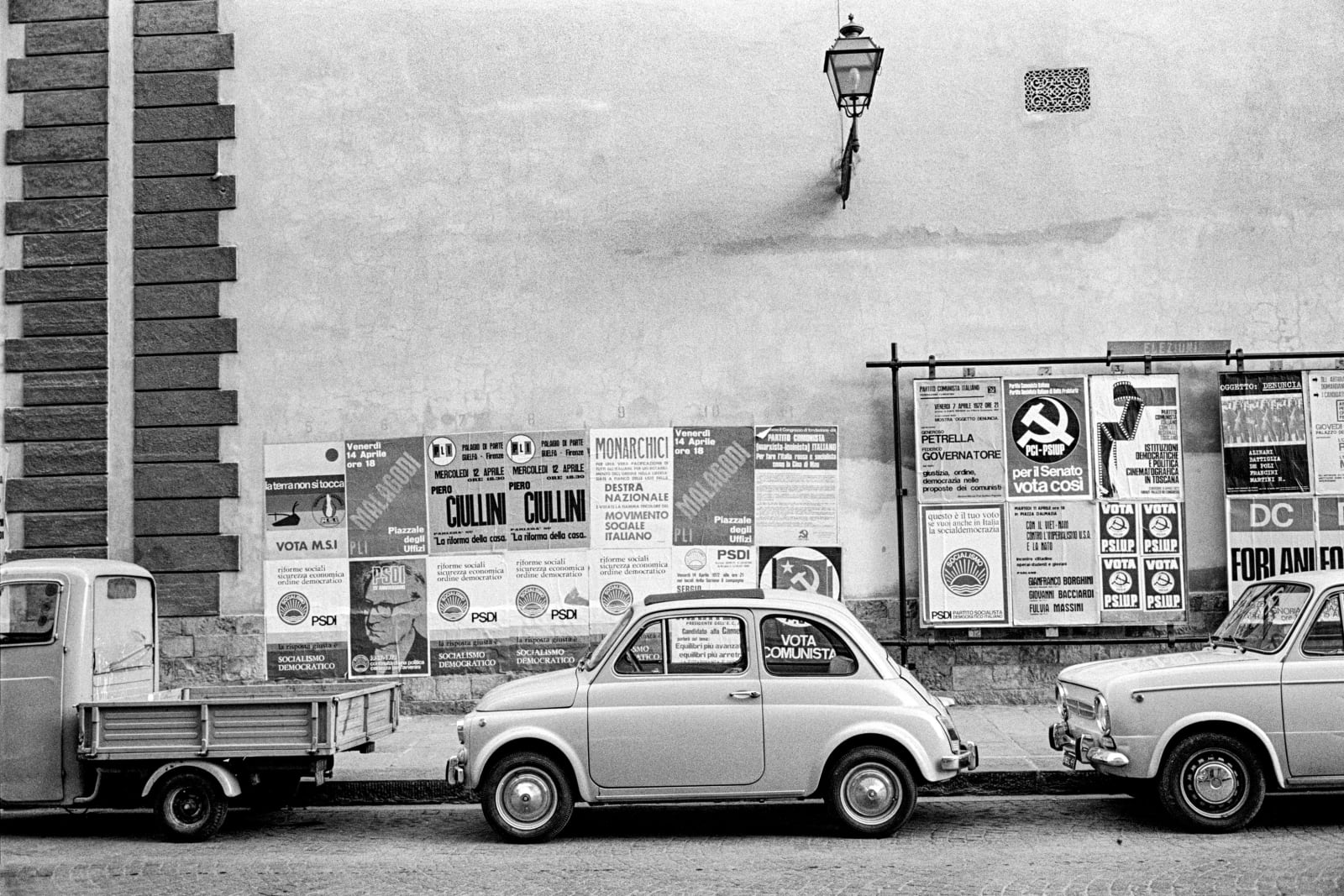
Clark Winter American, b. 27/10/1951
.
Paper: 40.6 x 50.8 cm / 16 x 20 in
.
In the gritty theater of 1970s Florence, Clark Winter captures a moment that pulses with the raw energy of Italian democracy in motion.
The photograph from 1972 presents a compelling tableau where politics spills from institutional corridors onto weathered stone walls, transforming the ancient city into a living canvas of ideological fermentation.
The image reveals a dense archaeological dig of political messaging, with campaign posters layered like sediment across the urban landscape. The PSI and PSDI jostle for attention alongside communist symbols - the hammer and sickle clearly visible - creating a visual cacophony that mirrors Italy's fractured political terrain. This was 1972, a pivotal year when Christian Democrats maintained power while the Communist Party held strong, and far-right movements gained unprecedented support amid growing social tensions.
Winter's compositional genius lies in his juxtaposition of three modest automobiles parked before this political archaeology.
These vehicles embody Italy's post-war economic miracle, symbols of a growing middle class caught between consumer prosperity and ideological turbulence. The cars become temporal anchors, grounding the political fever in everyday Italian life during what would later be called the "Years of Lead" - a period when political violence simmered beneath democratic discourse.
Architectural details - the weathered stone facade, ornate street lamp, and decorative window grate - root the image in Florence's Renaissance heritage while the poster collage speaks to democracy's messy vitality. This collision between ancient and modern becomes a metaphor for Italian society itself, where classical beauty coexists with contemporary political chaos.
Winter captures more than political advertising; he documents the democratization of public space where competing voices vie for attention through visual rhetoric.
The practice of covering walls with political messaging represents a visceral form of civic engagement, where the personal becomes inherently political and the street serves as parliament.
In this Florence moment, Winter preserves not just political history but the broader social fabric of a nation navigating its democratic identity.